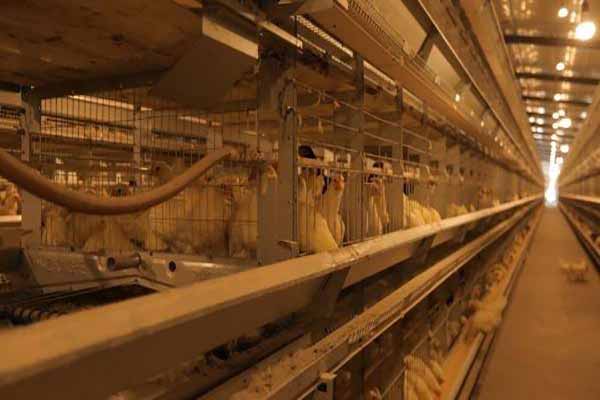How to Start a Chicken Farming Business: A Guide from Livi Machinery, Your Poultry Equipment Manufacturer from China
Time : 2025-07-26
Are you dreaming of starting your own chicken farming business? As a leading poultry equipment manufacturer from China, Livi Machinery is here to guide you through the process. With our expertise in poultry equipment and our passion for helping aspiring farmers, we’ve put together this comprehensive guide on how to start a chicken farming business. Let’s get started!
1. Understand the Market and Your Goals
Before diving into the world of chicken farming, it’s crucial to understand the market and define your goals. Here are a few questions to ask yourself:
– What type of chicken farming do you want to pursue? (e.g., broiler, layer, or free-range)
– How much capital do you have to invest?
– What is your target market?
– How big do you want your farm to be?
Understanding these aspects will help you create a solid business plan and set realistic expectations.
2. Choose the Right Location
The location of your chicken farm can significantly impact its success. Here are some factors to consider:
– Climate: Choose a location with a climate that is suitable for the type of chickens you plan to raise.
– Availability of Water: Chicken farming requires a constant water supply for drinking and washing.
– Proximity to Markets: Being close to your target market can reduce transportation costs and ensure fresher produce.
– Zoning Laws: Check local zoning laws to ensure that chicken farming is permitted in your chosen area.
3. Select the Right Chicken Breed
Different breeds of chickens are suited for different purposes. Here are some popular chicken breeds:
– Broilers: Ideal for meat production, as they grow quickly and have a high feed conversion rate.
– Layers: Known for their egg-laying capabilities, with breeds like the White Leghorn being particularly productive.
– Dressers: A mix of broilers and layers, designed for dual-purpose meat and egg production.
Consider your goals and market demand when selecting the breed that best suits your farm.
4. Invest in Quality Poultry Equipment
Investing in high-quality poultry equipment is essential for the success of your chicken farming business. Here are some key equipment items to consider:
– Chicken Houses: Provide a safe and comfortable environment for your chickens. Look for durable, well-ventilated, and easy-to-clean designs.
– Feeding Systems: Efficient feeding systems can help reduce feed waste and ensure that your chickens receive the nutrients they need.
– Watering Systems: Automatic watering systems ensure your chickens have access to clean water at all times.
– Heating and Cooling Systems: Depending on your climate, heating and cooling systems can maintain optimal conditions for your chickens.
As a poultry equipment manufacturer, Livi Machinery offers a wide range of high-quality products designed to meet the needs of chicken farmers like you.
5. Develop a Feeding and Management Plan
A well-thought-out feeding and management plan is essential for the health and productivity of your chickens. Here are some key points to consider:
– Nutrition: Feed your chickens a balanced diet that meets their nutritional requirements.
– Health: Regularly monitor the health of your chickens and implement preventive measures to avoid disease outbreaks.
– Sanitation: Keep your chicken houses clean and maintain good hygiene practices to prevent the spread of diseases.
– Handling: Learn proper handling techniques to minimize stress and ensure the safety of your chickens.
6. Implement Biosecurity Measures
Biosecurity is crucial in chicken farming to prevent the introduction and spread of diseases. Here are some biosecurity measures to consider:
– Sanitation: Regularly clean and disinfect your chicken houses and equipment.
– Isolation: Isolate new birds from the rest of the flock to prevent the spread of diseases.
– Monitoring: Regularly monitor your chickens for signs of illness and take immediate action if necessary.
7. Market Your Products
Marketing your chicken products is essential to attract customers and ensure a steady income. Here are some marketing strategies to consider:
– Direct Sales: Sell your products directly to consumers through farmers’ markets, farm stands, or online platforms.
– Wholesale: Partner with local restaurants, grocery stores, and food distributors.
– Brand Building: Create a strong brand identity and promote your products through social media, local advertisements, and word-of-mouth.
8. Stay Informed and Continuously Improve
The poultry industry is constantly evolving. Stay informed about the latest trends, technologies, and best practices in chicken farming. Attend industry conferences, read relevant publications, and seek advice from experienced farmers and experts.
By following these steps and leveraging the expertise of a trusted poultry equipment manufacturer like Livi Machinery, you’ll be well on your way to starting a successful chicken farming business.
—












